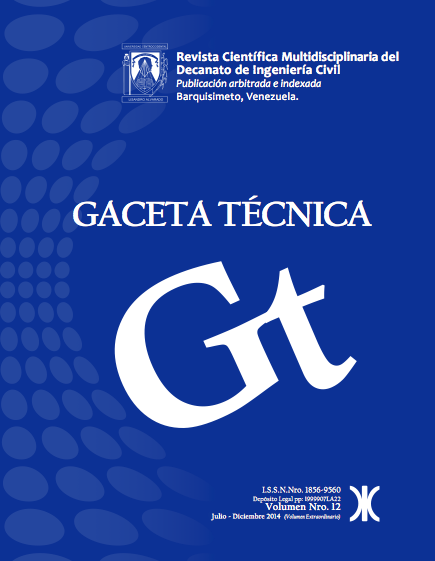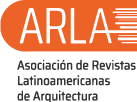Green computing: an environmental sensitivity offer
Keywords:
environmental sensitivity, green computing, TICAbstract
This article describe an environmental sensitivity offer for the students of Systems 1 course of the Computer Engineering Program of Universidad Centroccidental Lisandro Alvarado (UCLA), based on the green computing practice. The offer seeks to sensitize to these professional futures, in order that they could help to improve the environmental situation of the planet. The study began with the review of the foundations of the green computing, supported on the monographic documentary investigation, then were selected the green computing practices for including in the offer, the offer was designed, was implemented and finally, based on the field investigation and across the application of a structured interview and the use of a check list, was measured up and analyzed the results. The offer consisted of adding new instructions to the practical work of the course, orientated to using the Information and Communication Technologies (ICT) to minimize the energetic consumption and to generate ICT solutions that reduce the energetic consumption. The practices mainly accepted went related to the ICT use to minimize the energetic consumption, specifically, the use optimizing of printers, ink and paper
Downloads
References
2. Bitelia (2010). La Informática Verde. Disponible en http://bitelia.com/2010/10/la-informatica-verde [Consulta: 2014, Mayo 28]
3. Cobo, J. (2009). El concepto de tecnologías de la información. Benchmarking sobre las definiciones de las TIC en la sociedad del conocimiento. Revista Zer, Vol. 14. No. 27. Año 2009. Pp 306
4. RAE. (2001). Diccionario de la Lengua Espa- ñola. Disponible en http://lema.rae.es/drae/val=informatica [Consulta: 2014, Febrero 15]
5. Álvarez, J. (2009). TICs y Medio ambiente: la in- formática verde está de moda. Cátedra Telefónica: Tecnologías de la Información y las Comunicacio- nes Aplicadas al Medio Ambiente. Universidad de Oviedo. Disponible en http://www.tsc.uniovi.es/ catedra-telefonica/tics-y-medio-ambiente-la-infor- matica-verde-esta-de-moda/ [Consulta: 2014, Mayo 09]
6. Naciones Unidas. (2009). Conferencia de Cam- bio Climático. Disponible en http://www.natura- medioambiental.com/2009/12/que-es-la-informati- ca-verde.html [Consulta: 2014, Enero 20]
7. Guembes, L. (2009). Impacto de las TIC en el me- dio ambiente. Revista Logicalis Now, Vol. 3 No. 7. Año 2009. Pp 40 – 41
8. Fernández-Ges, A. (2009). Tecnología, TIC y Sos- tenibilidad. Glosario de Sostenibilidad. Trabajo no publicado de la Asignatura Por una Ciudad más Sostenible. El planeamiento urbano frente al para- digma de la sostenibilidad del Doctorado DUyOT: Periferias, sostenibilidad y vitalidad urbana. Univer- sidad Politécnica de Madrid. Disponible en http:// sodec.ee.upm.es/tajo4/files/tic-sostenibilidad-an- dres-fernandez-ges.pdf [Consulta:2014, Marzo 1]
9. Careaga, A. (2010). Green IT: El Color Verde de la Tecnología. Disponible en http://contenidosabier- tos.academica.mx/jspui/bitstream/987654321/16/1/ Green%20IT.pdf [Consulta: 2014, Febrero 08]
10. Dickerson, K., Torres, D., Canet, J., Smiciklas, J., Faulkner, D., Bueti, C., et. al. (2011). Uso de las TIC para hacer frente al cambio climático. Disponible en http://www.itu.int/dms_pub/itu-t/oth/0B/11/ T0B1100000A3301PDFS.pdf [Consulta: 2014, Febre- ro 08]
1. Dell. (s.f.). Servicio de Reciclado de Dell. Disponible en http://support.dell.com/support/topics/ topic.aspx/la/shared/support/recycle/es/recycle?c =mx&l=es&s=gen&DoNotRedirect=y[Consulta:
2014, Marzo 08]
12. Movistar. (2014). Esquinas Verdes. Disponible en http://www.movistar.com.ve/particulares/lo- nuevo/esquinas_verdes.asp [Consulta: 2014, Mar- zo 30]
13. Merino, D. (2010). Gestión de desechos electrónicos de mayor generación en la ciudad de Loja. Ecuador: Escuela de electrónica y telecomunicacio- nes
14. UCLA, (2010). Programa Instruccional de la Asig- natura Sistemas 1 del Programa de Ingeniería en Informática. Departamento de Sistemas. Decanato de Ciencias y Tecnología.
15. Sabino, C. (1992). El proceso de investigación. Venezuela: Editorial Panapo. Pp 80 - 86
16. Elizari, F. (2007). El ahorro energético no debe ser el fin de una política verde TIC. Disponible en http://www.siliconnews.es/2007/10/19/gartner-di- maio-ahorro-energetico /1/ [Consulta: 2014, Mayo 31]
17. Agencia Iberoamericana para la Difusión de la Ciencia y la Tecnología. (2013). Un proyecto euro- peo busca reducir un 50% el consumo energético asociado a las TIC. Disponible en http://www.dicyt. com/noticias/un-proyecto-europeo-busca-reducir- un-50-el-consumo-energetico-asociado-a-las-tic [Consulta: 2014, Mayo 31]
18. R Noticias. (s.f.). Green IT, soluciones TIC más responsables con el medio ambiente. Disponible en http://empresas.mundo-r.com/servlet/Satellite ?idContenido=1270580923398&cid=121498543386 8&pagename=WEBCorporativa%2FWCR_Mostrar_ accesible&Idioma=es&c=WCR_Seccion [Consulta: 2014, Mayo 31]
19. Reich, K. (2008). Ahorro de Energía basado en Software Bajo Consumo. Revista Linux Magazine, No. 44. Año 2008. Pp 18 - 20. Disponible en http:// www.linux-magazine . es/issue/44/018-023Apaga- doLM44.pdf [Consulta: 2014, Mayo 31]
Published
How to Cite
Issue
Section
The opinions expressed by the authors do not necessarily reflect the position of the editor of the publication or UCLA. The total or partial reproduction of the texts published here is authorized, provided that the complete source and electronic address of this journal is cited. Authors have the right to use their articles for any purpose as long as it is done nonprofit. The authors can post on the internet or any other media the final approved version of their work.







.png)




